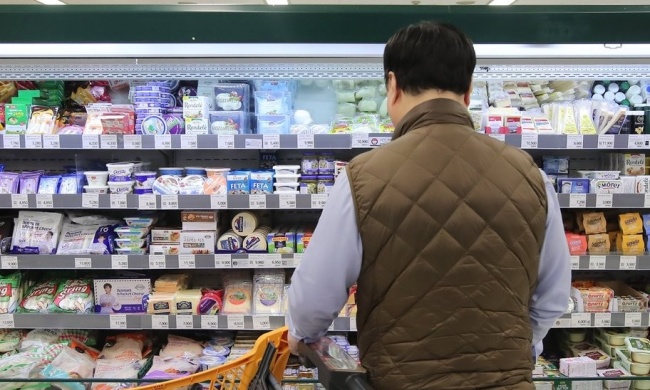Prices of processed foods and eating-out costs in South Korea have been rising sharply this year due to increased labor and raw material expenses, industry sources said Wednesday.
The government raised the minimum wage by 16.4 percent to 7,530 won ($6.48) per hour on Jan. 1 this year, the biggest hike in nearly two decades. Next year’s minimum wage has been set at 8,350 won, up 10.9 percent from this year.
According to the sources from the convenience store industry, Ottogi Co., Korea’s second-largest maker of instant noodles called “ramyeon,” raised prices of 16 processed foods, excluding ramyeon, by up to 27.5 percent last month.
Confectionery companies followed suit. Lotte Confectionery Co., Haitai Confectionery & Foods Co. and Crown Confectionery marked up prices of popular snacks by 25 percent to nearly 33 percent in June.
Early this month, noodles and beverage maker Paldo Co. jacked up prices of its canned rice drink and persimmon punch by slightly over 11 percent.
In the wake of the increased minimum wage, eating-out costs have risen over the past year as restaurants, which rely on part-time workers, pass increased expenses on to customers.
According to the Korea Consumer Agency, seven out of the eight dishes most favored by Koreans when eating out saw their prices go up over the past year.
A bowl of cold noodles, or “naengmyeon” in Korean, carried a price tag of 8,808 won in the Seoul metropolitan area in June, up 10.6 percent from the same month a year earlier and marking the biggest gain.
The second-largest gainer was “samgyeopsal,” or pork belly. The price of pork belly came to 16,489 won per 200 grams, up 5.6 percent from a year earlier.
Meanwhile, a bowl of “jajangmyeon,” or black bean sauce noodles enjoyed by most Koreans, fetched 4,923 won, the same as last year.
“Food processing companies have sent us a notice of price hikes, citing increases in labor costs and raw materials,” said a convenience store official.
Korea’s overall consumer prices, however, remain tamed.
The country’s consumer price index climbed 1.5 percent in June from a year earlier, well below the Bank of Korea’s target of 2 percent for the year. (Yonhap)


